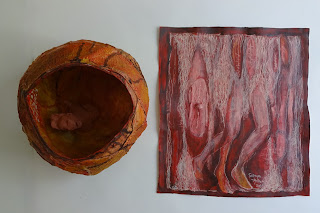(Afterthoughts)
She alludes to the postwar years as a time when men were leaving, as if suggesting an era when men were constantly and continuously leaving the island. Similar to the flow of a river, she addresses those years as the years of one directional mass exile. One, indeed, could refer to an exodus of men to the United States; furthermore this exploration might also incorporate other positions about contemporary discourses on mobility.
The use of rivers as metaphors for the one way migration can be questioned, as this model evokes a coordinated flow, while it denies a change of direction in the currents, hence contradicting theories of circular, pendulous, zig-zag, and other kind of migration.
She alludes to the postwar years as a time when men were leaving, as if suggesting an era when men were constantly and continuously leaving the island. Similar to the flow of a river, she addresses those years as the years of one directional mass exile. One, indeed, could refer to an exodus of men to the United States; furthermore this exploration might also incorporate other positions about contemporary discourses on mobility.
The use of rivers as metaphors for the one way migration can be questioned, as this model evokes a coordinated flow, while it denies a change of direction in the currents, hence contradicting theories of circular, pendulous, zig-zag, and other kind of migration.

Comments